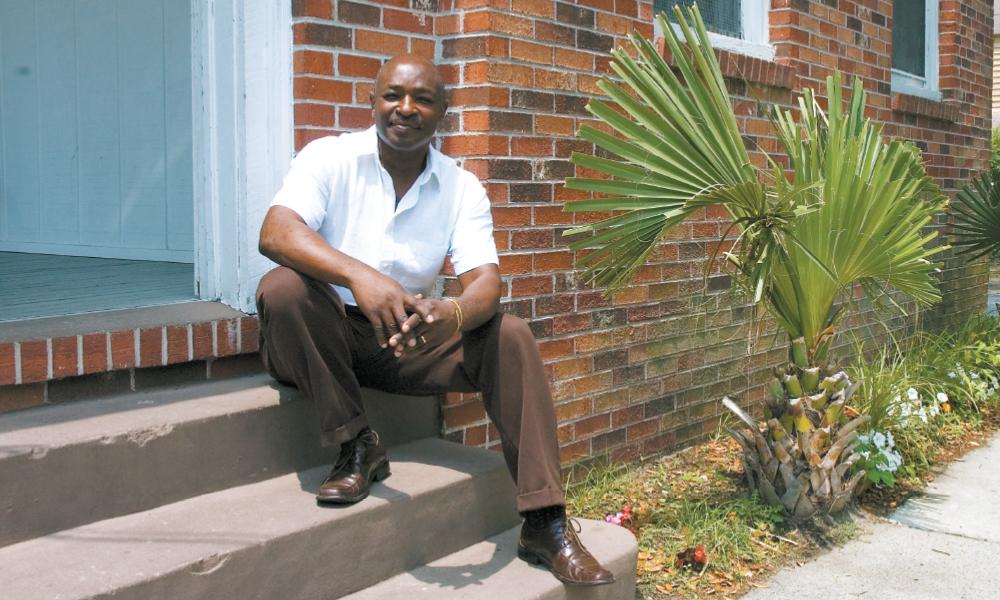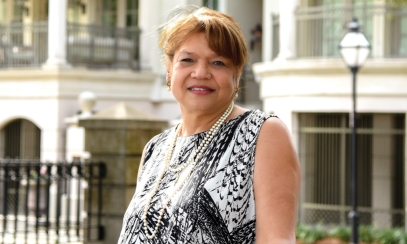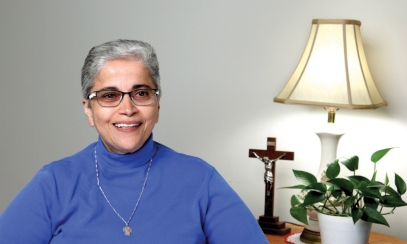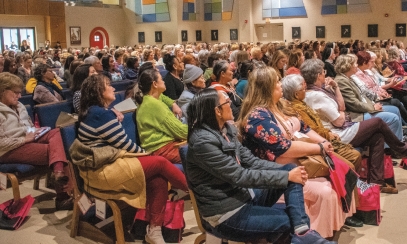
Generations of Service: Family Ties with Catholic Communities Across Seven Decades
There’s no denying the connection multi-generations from the same family share, but it’s particularly unique when the connection comes in the form of careers with the Catholic Church.
There’s no denying the connection multi-generations from the same family share, but it’s particularly unique when the connection comes in the form of careers with the Catholic Church.
There’s a particular Lowcountry family, all of whom hail from a melting pot of different religious backgrounds — and none of them Catholic — but their work within the Church serving people in need is something beautiful.
Neighborhood House
The story begins with Esau Jenkins and his efforts in the Civil Rights movement. He and other community leaders strategized from Neighborhood House in downtown Charleston in the 1950s and 1960s. Neighborhood House was founded by Sister Mary Anthony Monahan of the Sisters of Charity of Our Lady of Mercy (OLM).
Jenkins worked to secure voting rights for Black people, to end segregation and ultimately he was instrumental in ensuring that Black people were able to attend school, vote and have access to banking service.
He died in 1972.
Hope House
This was right around the time that his granddaughter, Jacqueline Jefferson, began working in administration and marketing at St. Francis Hospital with the same religious women.
She went on to work with the OLMs at the Christian Hope House on Johns Island. Her grandfather had toured the Sea Islands in the decades before with the religious order to show the great need for assistance. Esau Jenkins knew something like Neighborhood House was vital, and needs only increased after the devastation of Hurricane Hugo in 1989. That same year, Christian Hope House opened.
Jefferson was employed at Hope House, which later became Our Lady of Mercy Community Outreach, until her retirement in 2022 — a 45 year commitment. During that time, yet another family tie became clear.
Sea Island grants
As late as the 1990s, many homes in the Johns Island area were still using outhouses for bathrooms. Jacqueline Jefferson’s mother, Ethel Grimball, worked from 1991-2001 with the OLMs identifying grants and programs. Grimball was perfect for the job since she had worked for Charleston County writing grants. She helped many Sea Island homeowners with getting indoor plumbing and also worked with the community on adult literacy.
Restorative Justice program
Finally, Nikki Grimball — Ethel Grimball’s son, Jacqueline Jefferson’s brother, Esau Jenkins’ grandson — found himself following in the family footsteps in 2011.
Prior to his career with the OLMs, Grimball worked in Columbia for 30 years with the South Carolina Department of Disabilities and Special Needs. He and his wife wanted to move back to the Wadmalaw Island area so Grimball began applying to various nonprofits. He applied to Our Lady of Mercy and, just like that, he was in the “family business.”
When he took a position at Neighborhood House, unbeknownst to him, Grimball was in the same office where his grandfather Esau Jenkins used to organize and strategize for Civil Rights.
Grimball worked as the director of Neighborhood House for six years.
“I was walking in the footsteps of my grandfather,” he said. “I had no idea he was in that office when I took the position. The connections that my family has had through this work is incredible, and I don’t think we realized how significant it really is.”
Grimball officially retired from Neighborhood House seven years ago, and he is back in Columbia now working with Catholic Charities of South Carolina (CCSC) as the program specialist for Restorative Justice (see story page 14). The program assists formerly incarcerated people with reintegrating into society after they serve their time.
Other denominations and serving
Although no one in the family was Catholic — Esau Jenkins was United Methodist, Ethel Grimball served in the Presbyterian Church, Jacqueline Jefferson attended an African Methodist Episcopal church for most of her adult life and Nikki Grimball is non-denominational — it was their faith and Catholic engagement that brought them together to assist people in need.
The family members worked closely with Catholic religious sisters and became sought-after experts in various programs that CCSC provides for local communities.
“There is a reason we were all brought together like this throughout the years,” Grimball said. “It’s so much more than a coincidence.”



